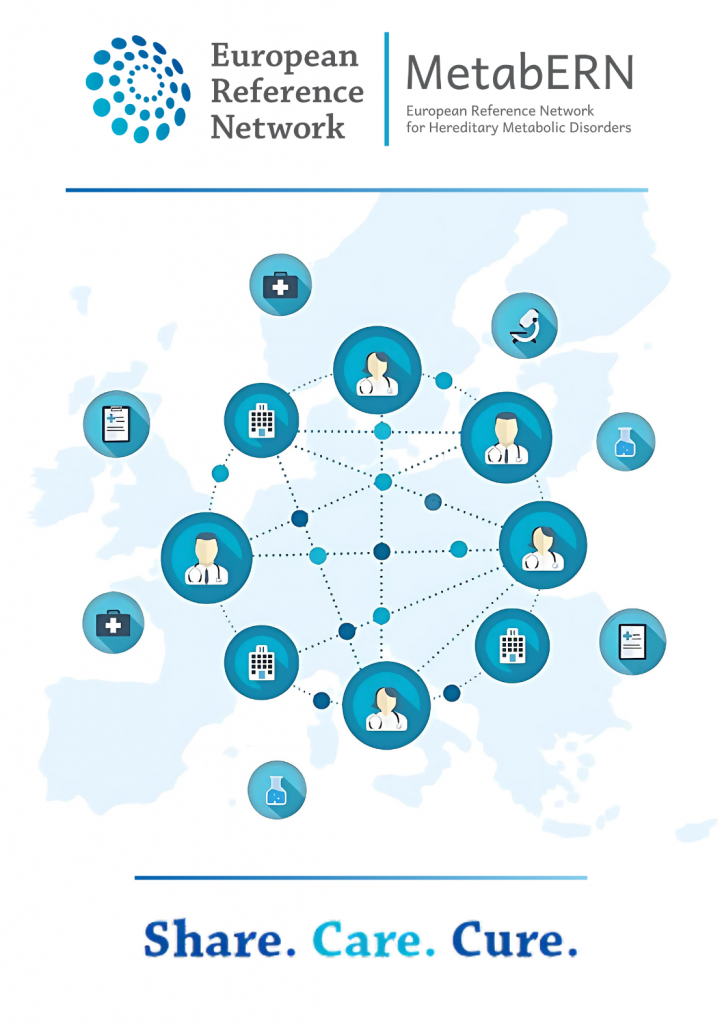About Us
OUR STORY
The European Reference Network for Hereditary Metabolic Disorders – MetabERN is one of the 24 European Reference Networks (ERNs) established by the European Commission in 2017 to facilitate access to the best available care and address the needs across the border for all patients with inherited metabolic disorders (IMDs) and their families.MetabERN is driven by the principle of patient-centred care to provide its services, aiming to improve patients’ and families’ quality of life.

MetabERN aims to connect the most specialised centres on inherited metabolic rare diseases to promote prevention, accelerate diagnosis, and improve care standards across Europe for patients living with inherited metabolic rare diseases. Driven by a strong collaboration of patients and experts, MetabERN aims to capture the most innovative medical advances and tailor them to patients’ needs.
MetabERN also strives to pool knowledge and improve information exchange between network member centres, enhance diagnosis and care in areas lacking expertise, support all Member States to provide highly specialised care to patients affected by IMDs, advance innovation in medical science and health technologies for IMDs, provide cross-border medical training and research on IMDs, support all patient initiatives towards harmonising and improving all aspects of the care chain.
ERNs’ establishment
Joining of new members
5-year evaluation of ERNs
Approval of the 2021-2027 programme
Our Vision
Our focus is on establishing a growing and developing network to improve the lives of patients affected by rare inherited metabolic disorders (IMDs).
Our Mission
To identify and bring together the best expertise from across Europe to facilitate prevention, diagnosis, management, research and access to the best available care for patients affected by rare inherited metabolic diseases.
Our Aims
- Pool knowledge and improve information exchange between network members;
- Improve diagnosis and care in disease areas where expertise is rare;
- Support all Member States to provide highly specialised care to patients affected by IMDs;
- Advance innovation in medical science and health technologies for IMDs;
- Provide cross-border medical training and research on IMDs;
- Support all patient initiatives towards harmonising and improving all aspects of the care chain.
